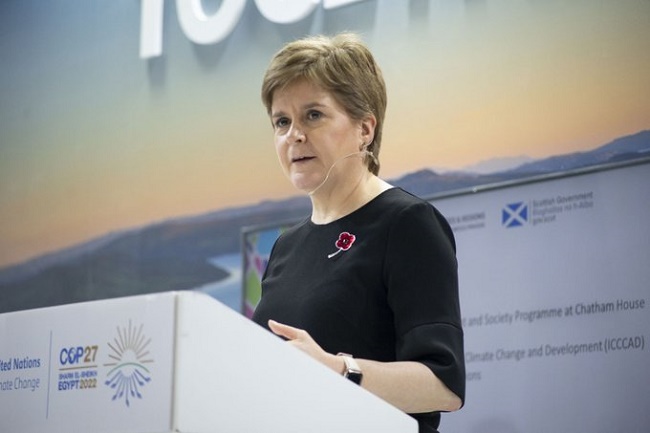On Tuesday, November 8, 2022, Austria announced $50 million for climate “loss and damage” at COP27 just hours after Scotland’s first Minister pledged an additional £5 million to support developing countries with direct finance to cope with the unavoidable, devastating impacts of the climate crisis. This means that in Europe there are now five countries Austria, Scotland, Belgium, Denmark and Germany that have committed to fund the loss and damage finance mechanism.

Later in the day, New Zealand announced $20 million for loss and damage at the COP, with James Shaw, Minister of Climate Change and Associate Minister for the Environment calling on developed countries to “step up and provide support to minimise and address their loss and damage from climate change”.
Belgium, Denmark, Germany and Scotland have committed small amounts of loss and damage funding, breaking ranks with other rich nations that have resisted such payments for fear of spiraling liabilities for their outsized contribution to causing climate change.
Germany, however, plans to make funding available based on its Global Shield Against Climate Risks insurance scheme. While there may be a space for insurance for some climate costs, loss and damage needs sustainable funding from reliable sources. Among other issues, the high premiums can create large gaps in coverage, with studies finding that overall poorer countries benefit less.
The most widely supported threshold for adequate loss and damage finance stands at around $1.3 trillion per year – a threshold announced last year at COP26 in Glasgow. There is clearly a huge gap between the promised funds and what is required to ensure that the most vulnerable communities around the world get the support that they deserve to manage the climate crisis.
Agnes Hall, Global Campaigns Director at 350.org, said: “We welcome the pledges from Austria and Scotland to fund the most vulnerable nations’ responses to unavoidable climate impacts – as Europeans we have a historic responsibility to provide support and solidarity. The deep inequalities between nations, and the vast difference between the carbon emissions of countries in Europe and North America and countries in Africa, Asia and South America, have their foundations in a long history of unfair treatment. However, to right those wrongs, European nations need to do much more in Sharm El-Sheikh and beyond.
“Confidence has already been undermined in the governments of the wealthiest countries – they have already failed to fulfill a promise of $100 billion climate finance per year to help poorer nations adapt to a rapidly changing climate, so there is a lot of ground to make up to restore trust. It is time to acknowledge the mistakes of the past and to act with common decency/humanity.
“To start this, more European nations need to step up with concrete financial commitments for Loss and Damage, and the EU bloc needs to ensure that the faulty mechanisms and processes for delivering finance under this umbrella are fixed over the next two weeks, and establish a Loss and Damage Response Fund.”
Joseph Sikulu, Pacific Regional Director at 350.org, said: “The Pacific welcomes any resources pledged to repair what impacted communities have lost because of climate change. The commitment from Scotland, Austria and other nations comes just as Pacific civil societies launched the Kioa Climate Emergency Declaration, which calls for new and additional loss and damage finance from wealthy countries.
“The lives and livelihoods of Pacific peoples continue to suffer irreparable damage caused by a climate crisis that we have contributed the least to. Pacific representatives are fatigued in climate negotiations as we see empty promises and unfulfilled pledges. Global North countries have a responsibility to ensure that loss and damage funding is not only sufficient, but also accessible to those who need it most.”
